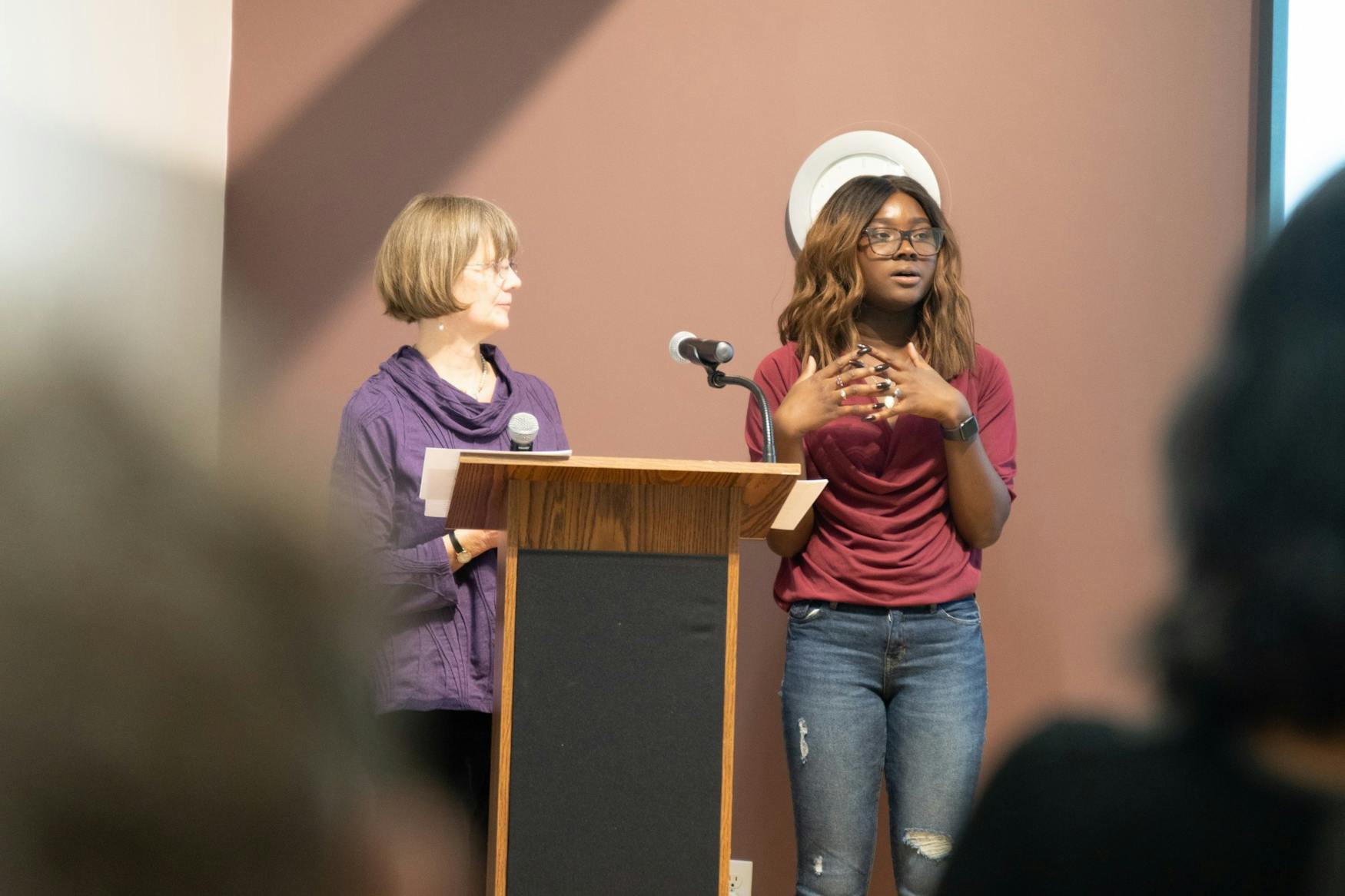Play reenvisions women’s suffrage movement
WSRC Scholar Pam Swing and Elizabeth Dabanka ’20 discussed their play “I Want to Go to Jail.”
Brandeis Women’s Studies Research Center scholar Pam Swing and undergraduate Elizabeth Dabanka ’20 discussed their play “I Want to Go to Jail,” which is based on the 1919 picketing of the Massachusetts State House by women’s suffrage advocates during the WSRC-sponsored event “Writing a Suffragist Play in 2019,” on Thusday.
Swing said that she was partly inspired to write the play because of her grandmother, Betty Gram Swing, who was a full-time national organizer for the National Women’s Party and fought for women’s rights, both nationally and internationally for several decades.
The play is focused on six women who participated in the 1919 picketing of the Massachusetts State House, fighting to secure women’s suffrage. The women “weren’t superheroes, they were doing superhero things but they were ordinary people taking up what was a really big deal for them at the time,” Dabanka said.
Dabanka said that it was hard not to make the characters “strong,” especially “when you’re looking at it from a 2020 perspective, or in this case, a 2018 perspective.” When writing this play, she and Swing wanted to make it evident that “not all of these women were secure in what they were doing. They were scared; they were your average people,” Dabanka said.
Swing and Dabanka also discussed the struggles of writing a play about women’s suffrage in the 21st century. One of the main issues was finding a balance between being historically accurate and interesting. Swing said that a big question that they struggled with was, “What if historically accurate is boring?”
Dabanka said that the play “Hamilton” was an inspiration for this play because it was written using reimagined history. It is also important to acknowledge the exclusion of black women in history, Dabanka said, which was another struggle when envisioning how their play would be written and performed. Dabanka said that they “thought it was important to have a racially diverse cast because [they] didn’t want to limit the people who could participate in this play.”
Swing and Dabanka discussed the first versions of the play, where they had 36 characters and went through many rounds of cutting characters until they ended with the six main women — Alice Paul, Betty Gram Swing, Lucy Daniels, Katharine Morey, Rosa Roewer and Martha Foley.
Paul was the head of the National Women’s Party and the strategic mastermind behind the picketing. Gram Swing was Swing’s grandmother and the only one to resist arrest. Daniels was an outspoken Vermont suffragist who advocated for including black women in the suffragist movement. Morey was an officer of the Boston branch of the National Woman’s Party. Mrs. Roewer was a local Boston mother of three whose husband threatened to sue unless she was kept in jail, after an anonymous man paid her fine. Foley was the youngest of the women and had never taken part in a public protest.
Foley was not originally the main character of the play, but as the character found her passion in writing about the suffragist movement, Swing and Dabanka found Foley becoming the main character. Throughout the play, Foley transforms from being unsure about herself to being confident in her passions and beliefs.
Swing and Dabanka showed three scenes of “I Want to Go to Jail,” which was performed at the Concord Free Public Library in August 2019, then asked attendees their thoughts on the play. One attendee suggested that there may have been a struggle between “being historically accurate and speaking in metaphors or language that’s more resonant with where we are now.” Another attendee said that it is easy to forget that many of the leaders of history were also ordinary people, which the play focused on.
On the play’s website, Swing and Dabanka wrote that, “as we approach the centennial of the passage of the 19th Amendment, ‘I Want to Go to Jail’ celebrates and honors the women who would not give up until American women won the legal right to vote. The centennial also gives all of us an opportunity to think about the issues of voting rights and social justice, both then and now.”



Please note All comments are eligible for publication in The Justice.